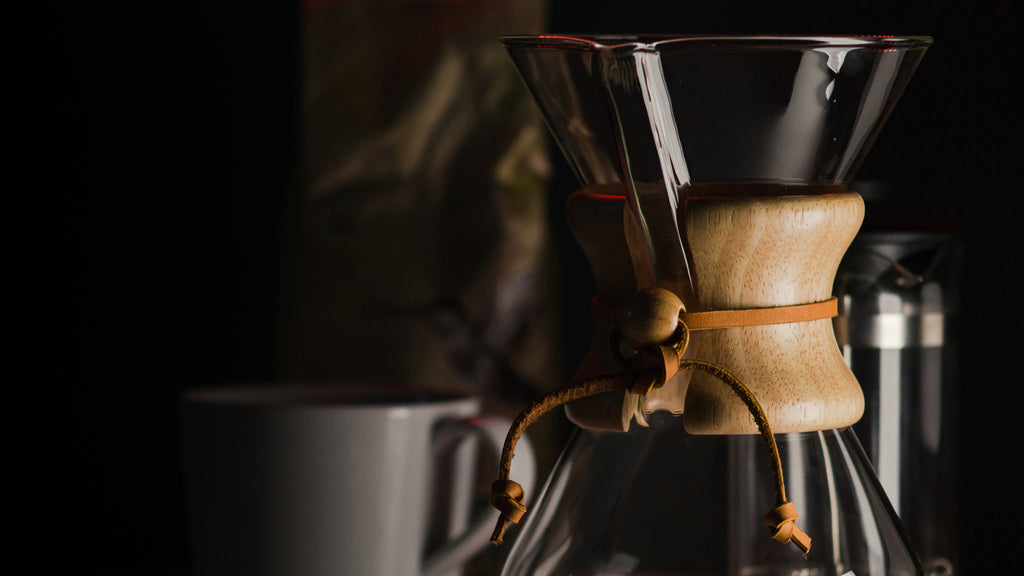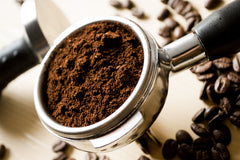Four Fundamentals to a Perfect Cup

Once you're equipped with fresh-roasted specialty coffee beans, little else stands in the way of achieving the perfect cup save for honoring the four fundamentals of brewing: grind, proportion, water, and freshness.
GRIND
 Grinding coffee properly, as with brewing it correctly, has everything to do with immediacy. To obtain optimum quality from whole bean coffee, grind only the amount you intend to brew immediately before you brew it. Coffee is a highly perishable agricultural product whose primary enemies are oxygen, light and moisture. Once whole bean coffee is ground, its surface area increases dramatically—as does the ability of oxygen, light and moisture to degrade it.
Grinding coffee properly, as with brewing it correctly, has everything to do with immediacy. To obtain optimum quality from whole bean coffee, grind only the amount you intend to brew immediately before you brew it. Coffee is a highly perishable agricultural product whose primary enemies are oxygen, light and moisture. Once whole bean coffee is ground, its surface area increases dramatically—as does the ability of oxygen, light and moisture to degrade it.
Choosing the correct grind rests with the brewing method. The longer the time your specialty coffee will be in contact with water during brewing, the coarser the grind should be. Less brewing time requires a finer grind. A grind that is too coarse for the brewing method used yields weak, under-extracted coffee. Too fine a grind, on the other hand, produces an over-extracted, bitter cup.
For example, coffee brewed using a French press is steeped in water for four minutes and demands a coarse grind. At the opposite end of the brewing continuum, an espresso shot requires just 20 seconds of brew time and needs a very fine grind. Rounding out the remaining grind types are a medium grind for drip coffee and a fine grind for vacuum pots and drip coffee using cone filters.
PROPORTION
 If a brewing mistake is going to be made, it’s likely to occur with the ratio of coffee grounds to water used. We suggest starting with a 1:16 coffee to water ratio which provides an excellent extraction level that maximizes flavor. Feel free to adjust this ratio to achieve a stronger brew if you wish. So, when brewing with 12 oz. (340g) of water, for example, one would use 21g of ground coffee. Similarly, 16 oz. (473g) of water would require 30g of coffee grounds. This may not correspond to the ratio you currently follow, but keeping to this principle will make a significant difference in cup quality. Should you find that the flavor is stronger than you’d like, simply dilute the brewed coffee with fresh, hot water. The importance of this ratio lies in the extraction process.
If a brewing mistake is going to be made, it’s likely to occur with the ratio of coffee grounds to water used. We suggest starting with a 1:16 coffee to water ratio which provides an excellent extraction level that maximizes flavor. Feel free to adjust this ratio to achieve a stronger brew if you wish. So, when brewing with 12 oz. (340g) of water, for example, one would use 21g of ground coffee. Similarly, 16 oz. (473g) of water would require 30g of coffee grounds. This may not correspond to the ratio you currently follow, but keeping to this principle will make a significant difference in cup quality. Should you find that the flavor is stronger than you’d like, simply dilute the brewed coffee with fresh, hot water. The importance of this ratio lies in the extraction process.Exceptional coffee results when 18-22% of the weight of the grounds is extracted during brewing. Although 30% of a coffee’s weight is actually extractable, the remaining material represents bitter, unfavorable qualities. When too much water is used, only the undesirable flavors remain to be pulled into the brew since the “heart” of the coffee has already been extracted. Consequently, excess water produces a bitter, inferior cup. To obtain the balanced, pleasing flavors you expect from those high-quality Arabica beans you’re brewing, try to follow the ratio and adjust for a milder cup later if you wish.
WATER
 Since water represents 98% of a brewed coffee’s volume, its influence on cup quality is significant. Fresh, cold water free of impurities is vital to perfectly brewed coffee. Some mineral content in water is actually desirable, but distilled or softened water should be avoided as they will not extract flavor from the grounds adequately.
Since water represents 98% of a brewed coffee’s volume, its influence on cup quality is significant. Fresh, cold water free of impurities is vital to perfectly brewed coffee. Some mineral content in water is actually desirable, but distilled or softened water should be avoided as they will not extract flavor from the grounds adequately.Water temperature is a critical factor in extraction. Except for espresso brewing, water for every other method should be “just off the boil”—195-205° F—to pull a coffee’s complete range of flavors into the brew. If you use an electric drip brewer, check the manual to be certain the machine meets this temperature requirement. Manual brewing, on the other hand, simplifies the process since you need only bring fresh, cold water to a boil then remove it for a moment to achieve a “just off the boil” temperature.
FRESHNESS
 The perfect cup demands freshness. Only fresh, high-quality Arabica beans that have been freshly ground, brewed, and consumed can meet this standard for excellence. If brewed coffee will be relegated to a warming element longer than 20 minutes, it’s best to transfer the coffee to an insulated thermos, thermal carafe or air pot so that oxidation doesn’t degrade its flavor. Stored in this manner, coffee will retain much of its freshness for nearly an hour.
The perfect cup demands freshness. Only fresh, high-quality Arabica beans that have been freshly ground, brewed, and consumed can meet this standard for excellence. If brewed coffee will be relegated to a warming element longer than 20 minutes, it’s best to transfer the coffee to an insulated thermos, thermal carafe or air pot so that oxidation doesn’t degrade its flavor. Stored in this manner, coffee will retain much of its freshness for nearly an hour. 